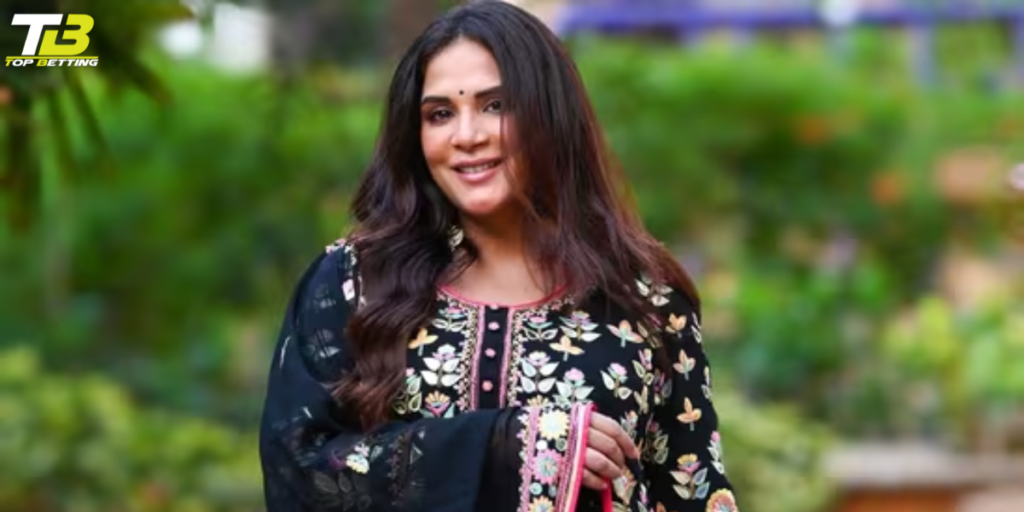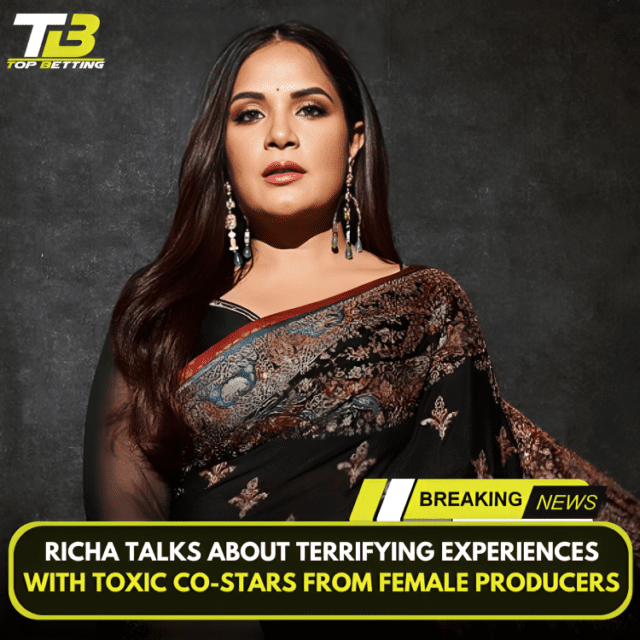
Richa Revelations: Toxic Co-stars and Female Producers
In a candid and thought-provoking interview, acclaimed Bollywood actress Richa Chadha has shed light on the intricate dynamics within the film industry, particularly when it comes to the complex relationship between feminism and the treatment of women. Chadha’s insights challenge the notion that the industry is a bastion of progressive values, revealing a more nuanced and at times, troubling reality.
Richa’s Experiences with Female Producers and Toxic Co-Stars
Chadha’s revelations paint a startling picture of the industry’s underbelly, where women in positions of power can sometimes exhibit behaviors that are antithetical to the very principles of feminism. The actress recounts “terrible experiences with female producers whose cheques bounced and they pretend to be feminists on Twitter (now X).” This unexpected dynamic challenges the assumption that women automatically support and empower one another in a male-dominated field.
Furthermore, Chadha also spoke of her encounters with “toxic co-actors constantly competing with [her] by not giving the right cues and cutting out the lights in scenes.” This cutthroat environment, where female colleagues engage in undermining tactics, is a sobering reminder that the pursuit of success and recognition can sometimes overshadow the ideals of sisterhood and solidarity.
Richa’s Perspective on “Vile Women”
Chadha’s candor extends beyond her personal experiences, as she delves into the broader issue of women who actively undermine the feminist cause. She asserts, “I think it’s an anti-feminist notion to think that women are not capable of evil. That’s just a dumb thing. We have enough vile women around us.” The actress cites the example of “women defending rapists” who are “often in positions of power” and “given a platform by the media.”
This acknowledgment of the existence of “vile women” challenges the simplistic narrative that all women are inherently virtuous and progressive. Chadha’s perspective underscores the need to recognize the complexity of human nature, irrespective of gender, and to avoid falling into the trap of romanticizing the concept of “sisterhood.”
The Nuanced Landscape of Feminism
Chadha’s insights also highlight the nuanced and multifaceted nature of feminism itself. She notes that she “knows plenty of women who are downright patriarchal and misogynist and plenty of men who are feminists.” This observation dismantles the notion that feminism is a strictly gendered phenomenon, and that one’s gender alone determines their alignment with feminist principles.
The actress’s candid reflections offer a poignant reminder of the intricate and multifaceted nature of pursuing gender equality and empowerment. Her insights underscore the necessity of a nuanced understanding of the diverse power dynamics within the entertainment industry and broader society. Achieving true gender equality involves navigating complex intersections of gender, race, class, and privilege, all of which impact opportunities and experiences. It requires dismantling entrenched norms and challenging systemic barriers that perpetuate inequality.
By acknowledging these complexities, we can foster meaningful dialogue and advocate for inclusive policies and practices. This includes amplifying diverse voices, supporting initiatives that prioritize equity and representation, and promoting systemic changes that address underlying power imbalances. The actress’s perspective illuminates the ongoing struggle for gender equality and emphasizes the importance of sustained efforts toward creating a more just and equitable world for all.
Richa’s Role in “Heeramandi”
Amidst these thought-provoking revelations, Richa Chadha’s recent role in the web series “Heeramandi” has garnered significant attention. The series, directed by the acclaimed filmmaker Sanjay Leela Bhansali, delves into the cultural reality of Heeramandi, a historical red-light district in India, during the country’s struggle for independence in the 1940s.
Chadha’s portrayal of Lajjo, a captivating courtesan, has been widely praised for its nuance and depth. The series promises to explore the intricate narratives of the courtesans and their patrons, shedding light on the complex power dynamics and societal upheavals of the time.
The Broader Implications of Chadha’s Insights
Richa Chadha’s candid revelations hold broader implications for the ongoing discourse surrounding feminism and gender equality in the entertainment industry. Her willingness to challenge the simplistic narratives and acknowledge the complexities within the system serves as a valuable contribution to the evolving dialogue.
By highlighting the existence of “vile women” and the complex dynamics between female colleagues, Chadha encourages a more nuanced understanding of the challenges faced by women in positions of power. This recognition paves the way for more targeted and effective strategies to address the systemic issues that hinder true progress and empowerment.

Conclusion
Richa Chadha’s insights into her experiences in the film industry and her perspective on feminism serve as a powerful reminder that the path to gender equality is not a straightforward one. Her willingness to confront the complexities and contradictions within the system underscores the need for a more holistic and nuanced approach to addressing the challenges faced by women in the entertainment industry and beyond.
As the industry continues to grapple with issues of representation, empowerment, and the pursuit of authentic feminism, Chadha’s candid revelations provide a valuable contribution to the ongoing discourse. By shedding light on the multifaceted nature of the problem, her insights pave the way for a more comprehensive understanding and, ultimately, more effective solutions.





